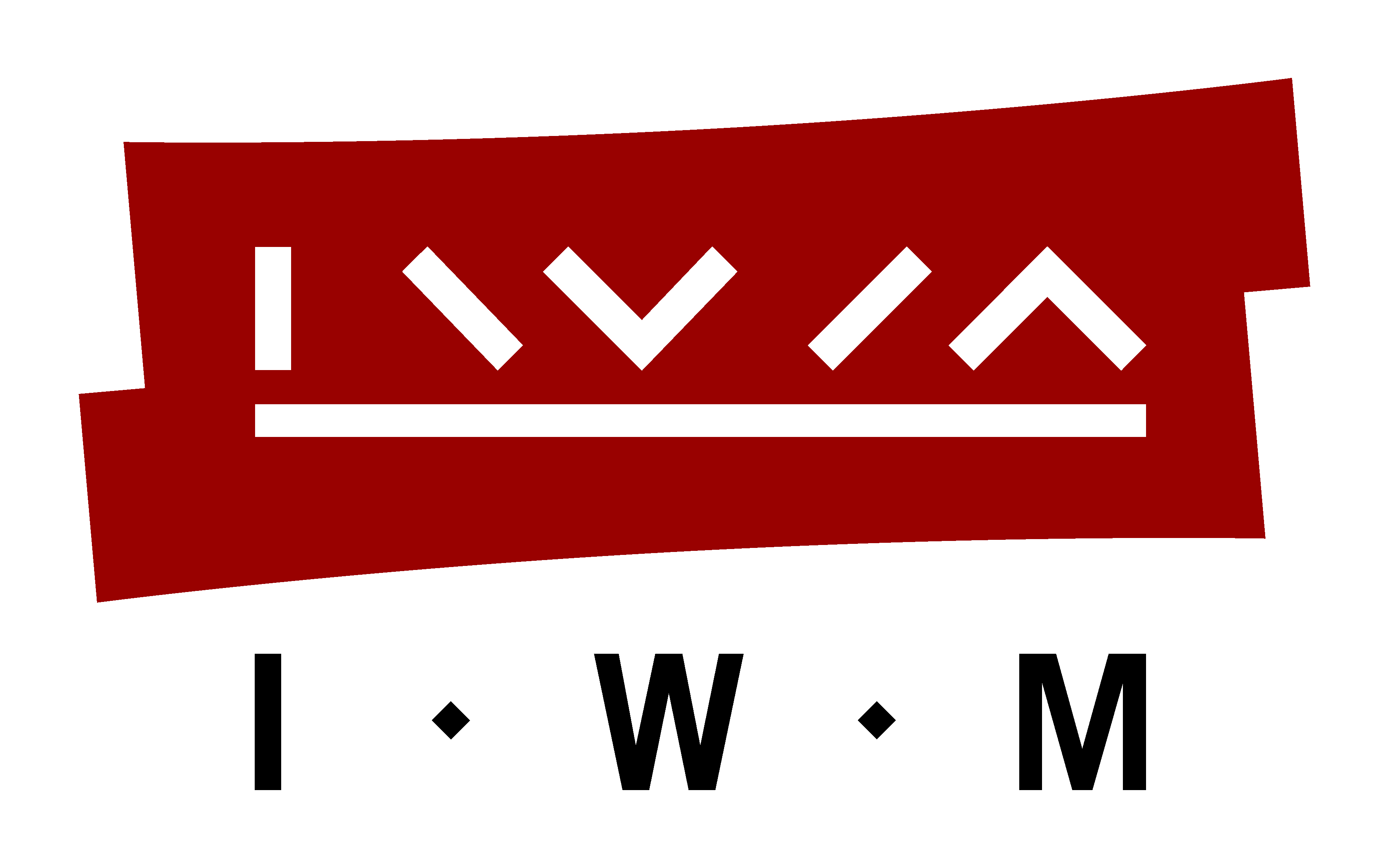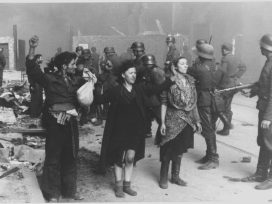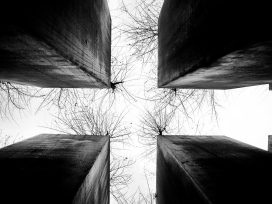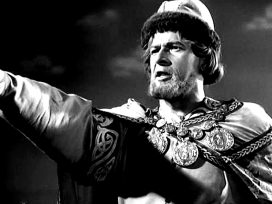The European Union was originally the creation of failed or failing European empires, even if it now tends to pose as an assembly of innocent little nation states. Facing up to the responsibility for half a millennium of imperialism is painful, but doing so would allow Europe to recognize its unique and auspicious recovery from empire, argues Timothy Snyder in the speech he delivered for Europe Day 2019 at Judenplatz, Vienna.
You are more than your myths. You are also a source of hope–perhaps the only source of hope for the future.
We stand here together today on the Judenplatz in Vienna on the ninth of May: until the sun sets, this is Independence Day in Israel. The ninth of May in Moscow or Kiev or Minsk is the day of victory. The defeat of Nazi Germany and its many European allies in the Second World War was celebrated, commemorated and remembered today in those European cities and others.
We are gathered here to remember the speech of Robert Schuman on this day in 1950, when Schuman declared that Europe could enable peace for the world. His declaration is seen today as the beginning of the European project, today’s European Union.
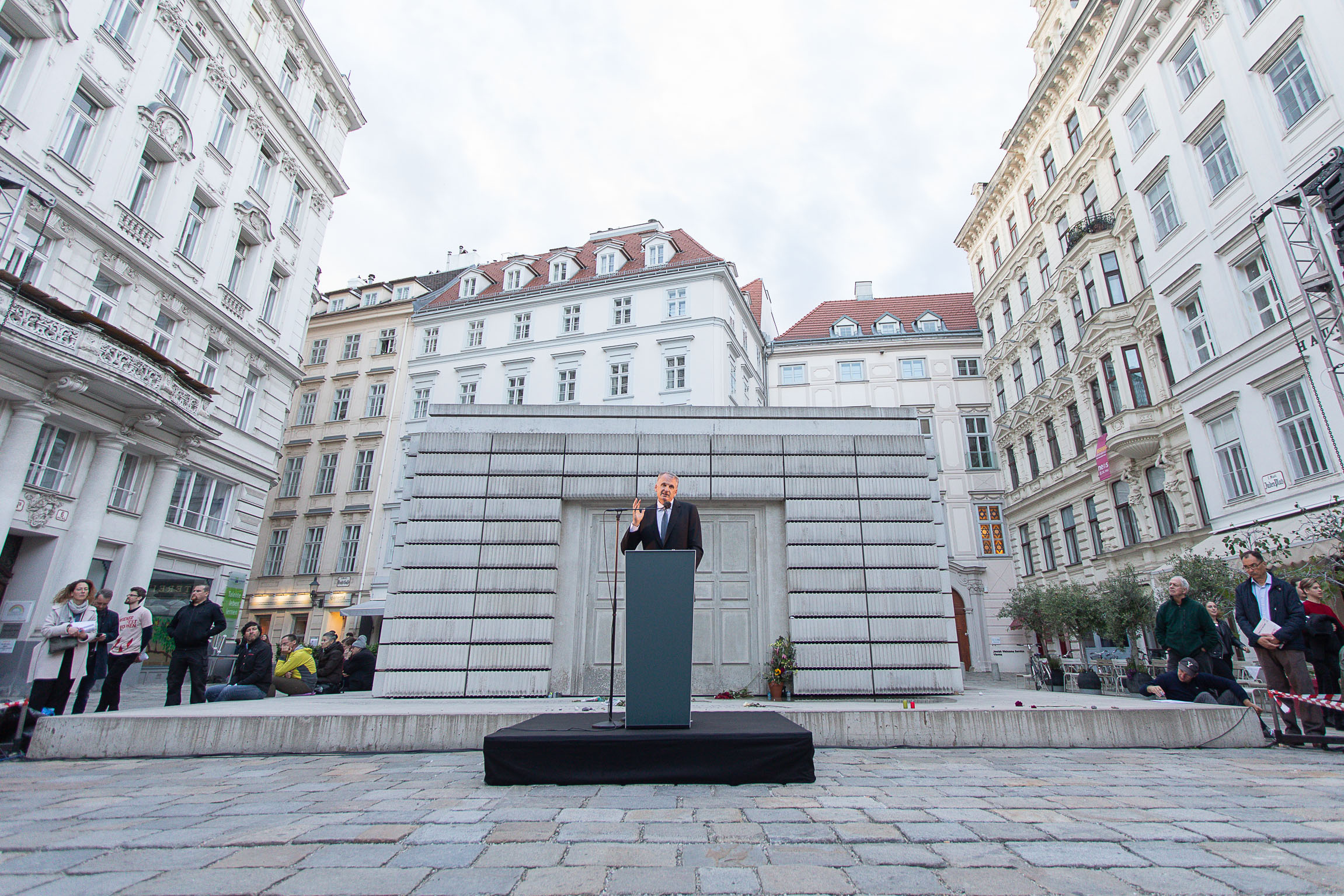
Timothy Snyder giving A Speech to Europe in front of the Holocaust Memorial at Judenplatz, Vienna. Source: APA Fotoservice
How do we remember the Holocaust, the Second World War, and the beginning of the European project together as one history? How can we consider the making of the European Project seventy years ago, while wondering whether it will be remade or unmade now? The answer to that question depends very much on whether you, Europeans, choose myths or choose history.
There are two ways to remember. There is one way to remember which leads you back to yourself, to a story about how you were always right, to a story about how you, or people like you were always innocent. That is myth. National myths prevail almost everywhere and may well prevail here.
There is another way of remembering, which is history. History allows you to take what you remember and add it to what others remember, constantly and critically compare memory with other sources and perspectives, so that you can see for what you are responsible.
When Schuman issued his declaration in May 1950, France was in the middle of a colonial war in which seventy-five thousand French soldiers were going to die. The vast majority of them were not French by country of origin. France was in the middle of the first of two colonial wars: after the Second World War, it would fight colonial wars for sixteen years in Southeast Asia and then in North Africa.
In France in the 1950s and 1960s, l’intégration did not necessarily mean European integration. L’intégration could mean the responsibility of the French army to integrate Arabs into the French state. After 1961, l’intégration meant the possibility that the French would be integrated into the new Algerian state.
Why do I say this? Because the myth that you all share, the European Union’s friends and its enemies alike, is the myth of the nation state. The Robert Schuman who made the declaration in 1950 was the foreign minister of an empire. France, whether republic or empire by name, had always been an empire throughout the entirety of its modern history.
You are more than your myths. But to be the hope that the rest of us outside of Europe need, you must come to terms with history. The idea that Europe is a group of nation states that chose integration is a fatal myth. It is killing the future.
One could disagree and should disagree about the future of Europe. But if the discussion about the future of Europe is held on the basis of myths about things that never took place, the discussion cannot be a fruitful one. History is about clearing the way. In the next few minutes I’d like to clear away some of the myths so that time can flow sensibly from the past through the present and into the future that we need. So think with me just for a moment about the countries that founded the European Project.
The European Union is the creation of failed or failing European empires.
At the beginning is Germany. The Germans were defeated in 1945 after the most decisive and most catastrophic war of colonialism of all time. We remember it as the Second World War. Italy in 1945 also lost a colonial war in Africa and in the Balkans. Not long after, in 1949, the Netherlands lost a colonial war in the East Indies. Belgium lost the Congo in 1960. France, having been defeated both in Indochina and Algeria, makes a decisive turn to Europe in the early 1960s. It was Charles de Gaulle who understood that not only the Republic but French statehood as such was endangered by empire. He made the decisive turn from empire to Europe in 1962.
These are the powers that initiated the European project. None of them were nation states at the time. None of them had ever been nation states.
The same is true for the countries who first joined the European Union. In the 1960s the entire British civil service, almost all the British parliament and the British elite understood that Europe was the substitute for imperialism.
When the Portuguese empire comes to an end or the Spanish empire comes to an end in the 1970s, new leaders correctly associated the end of empire with the beginning of democracy and integration with Europe. These things take place at the same time.
After 1989, after the end of the Soviet outer empire and then the end of the Soviet Union, the European Union was confronted with newly-sovereign countries that had been under Soviet rule or domination.
When the European Union admitted east and central European states in 1995 (Austria) and then in 2004, 2007, and 2013, it provided a home for the states that were created after the First World War. Several of the countries that joined the European Union in the 1990s and 2000s: Austria, Czechoslovakia, Poland, the Baltic States, were created as nation states in 1918 after the First World War. All six of them ceased to exist soon after. The history of nation states in Europe tends to be nasty, brutish and short.
The European Union today is an assembly of two kind of states: those that used to be at the centre of empires, and those that were on the periphery. In both cases, the question of what to do after empire has been answered–and then forgotten.
It is unusual on Europe Day to mention Algeria, Angola, the Congo, India, Indochina, Indonesia, Malaya, Morocco or Mozambique. This has to be done, because that is where European power lay in these postwar decades, and in still vaster realms before that. It has been in retreating from such places that Europeans created the Europe that we now understand.
Your myth that you as nation states came together turns your head away not just from the responsibility for imperialism, but also from the scale of your own achievement in recovering from empire. The story of the end of empire is not usually one of the affirmation of sovereignty and the rapid recovery of prosperity.
The European story is nice. It’s a nice story about innocent, small European nation states who, in their nice little way, realized that economic interests united them. It’s a nice story but it’s not history. The history of the twentieth century is that European powers, which had dominated the world for the previous half millenium, found themselves forced to pull back to Europe, where they created something new.
Schuman gave his address in 1950. The next year Hannah Arendt spoke of the essence of liberty being the creation of new things: ‘Freedom as an inner capacity of man is identical with the capacity to begin.’ The European Union is a new thing.
What I have said about memory in myth and history applies even more strongly to the history of the Holocaust as we remember it, or as we choose not to remember it.
We are standing before a memorial to the Holocaust, specifically a memorial to the 65,000 citizens of Austria: children, women and men who were murdered after Austria was destroyed in 1938. In some sense, the monument is familiar. Here we are in Vienna, we can imagine others who lived in Vienna. Here we are in Austria, we can perhaps with a bit of effort imagine what a German takeover in Austria was like.
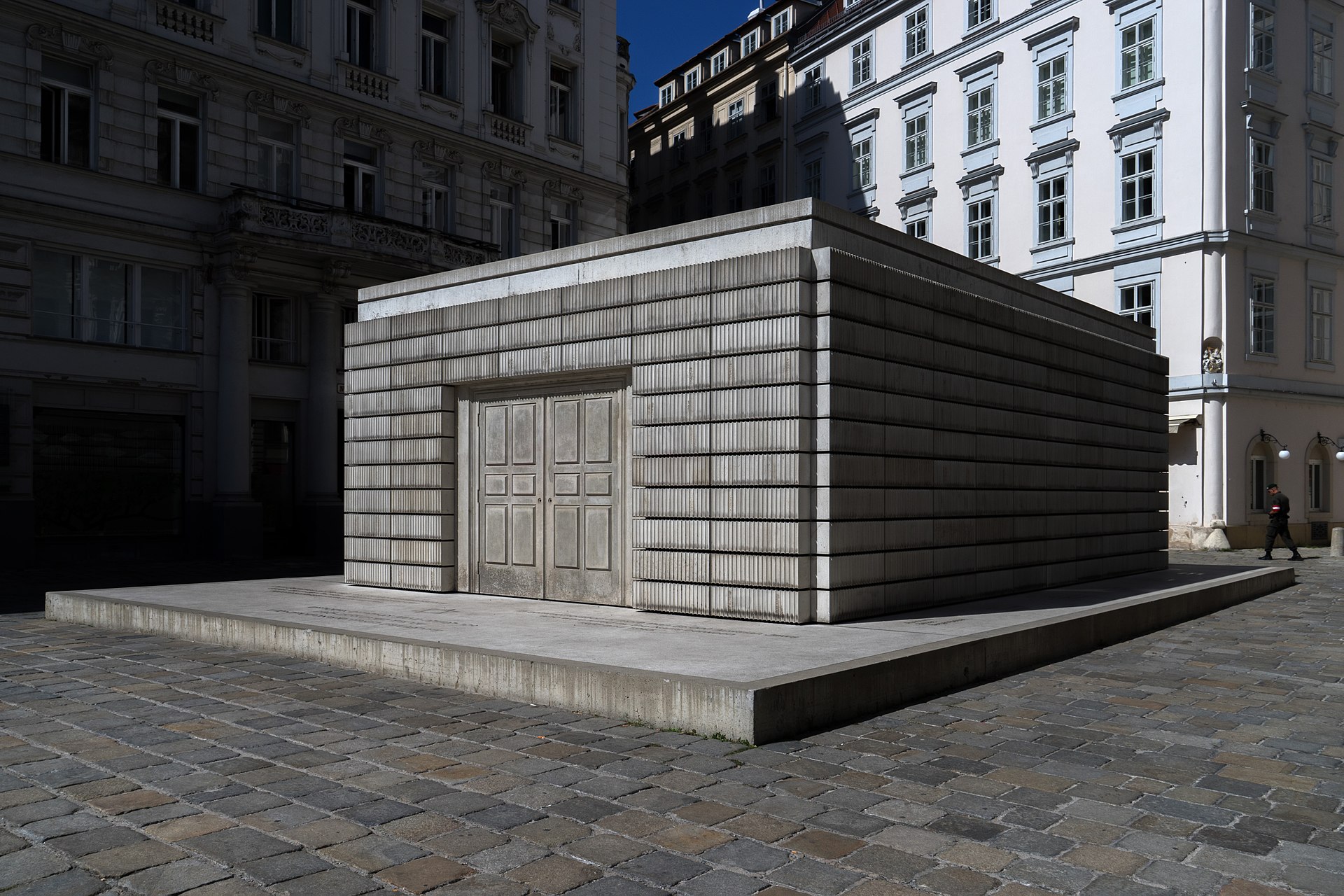
The Nameless Library: Judenplatz Holocaust Memorial in Vienna, Austria by Rachel Whiteread. Image from Wikimedia Commons.
It is when we approach the monument that we are challenged. But if we walk around and look at the names of localities engraved at the foot of the monument, the places where the Jews of Austria were actually killed, suddenly things become less familiar. Most of these places are not known to most Austrians, for the very good reason that Austrian Jews were killed very far away. Behind me, on the far side of the monument, is the name Maly Trostinets, a village in Belarus. More Austrian Jews, more Jews from this city were killed in that one Belarusian locality than anywhere else. They were killed so far away from home because of imperialism: because of the final European attempt to create empire. This is what the Second World War in Europe was.
If we want memory to join history, we have to remember the Holocaust and the war as they truly were. We must also not allow ourselves to remember the Holocaust in fragments of national memories. The national memories are not good enough. The scale of the Holocaust defies national memory. Its three basic causes are essential for both the history and the future of the European Union.
A first basic cause was ecological panic. Hitler’s argument for empire was that time was short, land was limited and that the Germans had to seize what they needed before others could. He wanted and then he started a war for the agricultural territory of Ukraine, which he compared to India, Africa, and America–zones of prior European empire. Hitler said specifically that science and technology will not rescue us, that we must take from others. That is ecological panic.
The second cause of the Holocaust was dehumanization. Since we must take from others, others are only valuable so far as they serve us: people can quite literally be quantified as our instruments. After the Jews, the second largest victim group in the Second World War were Soviet prisoners of war, three million of whom were starved in 1941 because it was believed that it cost more to feed them than their labour might be worth.
The third fundamental cause of this atrocious empire was state destruction. By destroying Austria, Czechoslovakia, Poland, the Baltic states, by trying to destroy the Soviet Union, the Germans and their allies created a zone in Europe where there was no rule of law, where things were possible which would not have been possible otherwise. This is what empires do. They don’t recognize people as citizens, they do not recognize political entities as equal states, they create zones where horror is possible.
The Jews are at the centre of all of this. The Jews were blamed by Hitler for believing that science might provide us all with universal answers for the ecological crisis. Jews were blamed by Hitler for claiming that humans should recognize other humans according to a principle of solidarity–Christian mercy, socialism, the rule of law, for Hitler it was all the same. Jews were to blame if humans recognized humans as other humans, as opposed to members of a race. This was why, according to Hitler, they had to be removed from the face of the earth: to allow for ecological panic to proceed into state destruction and German victory and conquest. And of course, in this country and everywhere else, when the state was destroyed, Jews suffered most and Jews suffered first.
When I say you are more than your myth–you’ll have gathered this–I mean that you are more terrible than your myth. I also mean that you are more powerful than your myth. The myth diverts you not only from seeing the scale of European responsibility for the past, but also from the scale of European responsibility for the future.
It is easy to say, though it is important to say, that Europeans have not fully understood the scale of the Holocaust and associated crimes. It is easy to say, and others such as Hannah Arendt and Aimé Césaire have said it long before, that the Holocaust is part of a larger history of the European empire. It’s important to say that.
Getting this right is not just about ethics, it’s also about power. Europeans, you have disempowered yourselves by getting your past wrong. If you want to know how this looks in another place, look at the United States of America. The current American predicament, the ethical and geopolitical weakness of the United States at the moment, is a result of our getting our imperial past wrong. You still have a chance to do better.
The reason why the past is so important is not just ethical, it is also a matter of power. Your implausible little national myths allow you not to see that you once ruled the world. The also keep you from seeing that the European Union is the one successful answer to the most important question in the history of the modern world: what to do after empire. There are two bad answers, or two answers with limitations: to make nation states or have some more empire. The European Union is the only new, fruitful, productive answer to that question.
That is why I say that you are more than your myths: you are also a source of hope to us on the outside. Of course I speak from a privileged position as an American; yet, from the outside, one thing is clear about the world that is not clear here inside the European Union: that it is still an imperial world.
You have created a huge zone of exception in a very positive sense. You have created the largest economy in the history of the world, you have created the series of contiguous functioning welfare state and democracies. There is nothing like this anywhere else in the world. Outside of here, there is still empire. And outside of here, the three fundamental motives of empire, and of the especially atrocious empire that was the Holocaust, are still present.
Please consider them with me: ecological panic, dehumanization and state destruction.
Ecological panic is all around us. We are facing very real and pressing ecological distress, most obviously in the form of global warming. We are also facing political parties and leaders who tell us that the science of this is doubtful or not true, that we should wait. And, strikingly, the very same people who tell us that global warming is not a problem, or that we can wait, or that the science is not true, also tell us that refugees are our enemies, and that some races are better than others.
I would not dream of telling you, Europeans, who to vote for in the coming European elections. But I will say this, as an American: do not vote for the party that denies global warming, because any such party is telling you three things about itself: it will lie about everything; it does not care about the fate of your children and grandchildren; and it is the creature of hydrocarbon oligarchs. If you are in Europe, they are not even your hydrocarbon oligarchs.
The deeper irony is that the same parties who tell Europeans that global warming is not a problem, are the ones that tell you that migrants are a problem. Global warming affects the global South much more than the global North, and if you don’t do something about it, there will eventually be uncontrolled migration. That is ecological panic, today and tomorrow. And the European Union is one of the few entities in the world that is doing something about it.
State destruction is still with us. Some of the states that have fallen apart did so because of ecological problems, at least in part. What may look from Europe like genocide or uncontrolled migration arises from the weakness of states in places like Rwanda, the Sudan, or more recently in Syria, a weakness that in each case has to do with climate change. States can also be weakened destroyed because great powers decide, mindlessly or otherwise, to invade them, as with the American invasion of Iraq, the Russian invasion of Ukraine.
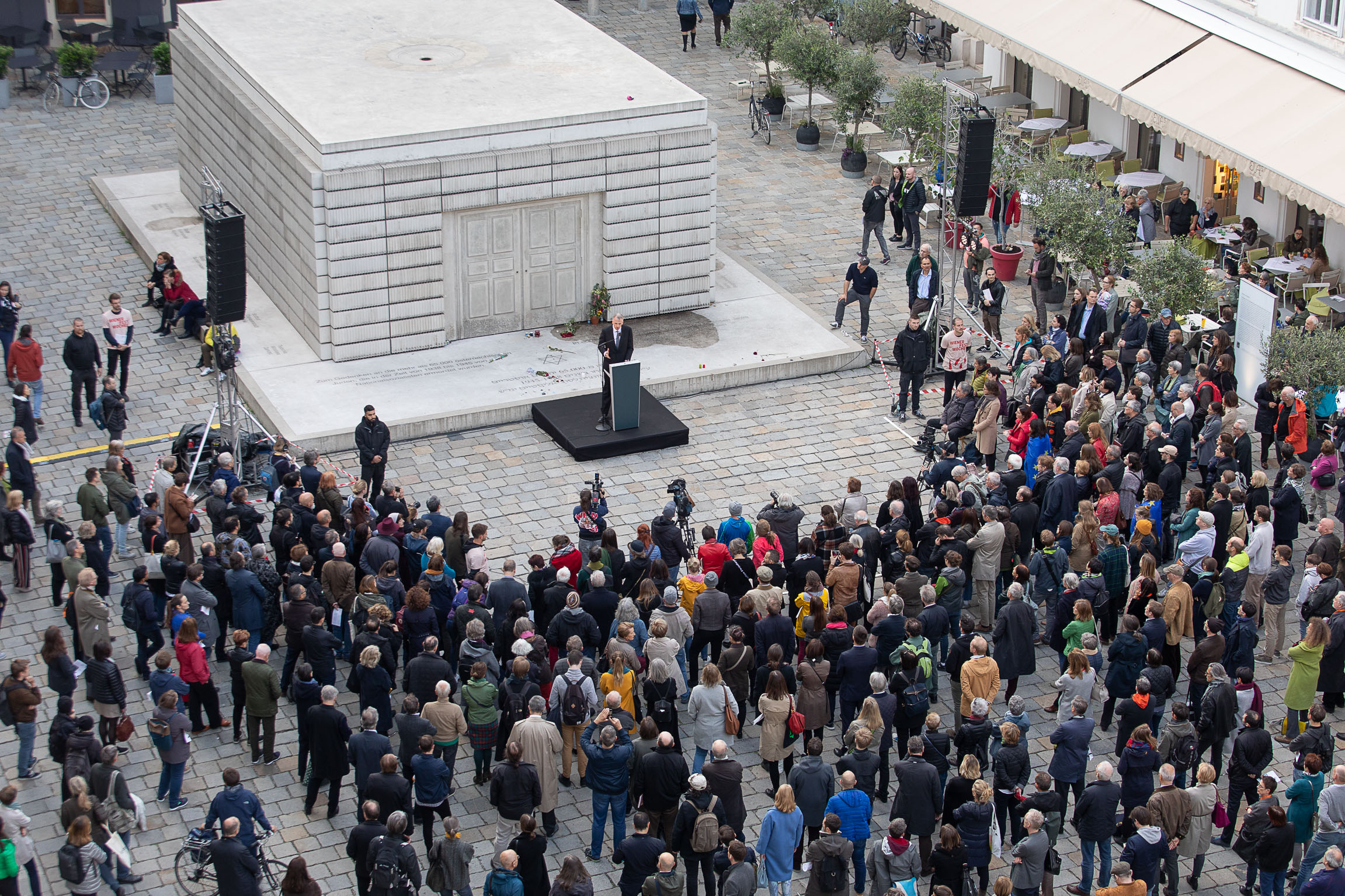
Timothy Snyder giving A Speech to Europe in front of the Holocaust Memorial at Judenplatz, Vienna. Source: ERSTE Stiftung/APA-Fotoservice/
Photo: Richard Tanzer
It is not visible from inside but is very clear from the outside that the European Union strengthens the European state. The debate about sovereignty inside the European Union makes no sense. There have never been so many European states lined up next to each other, ever. The reason why they are so strong internally and externally is precisely the European Union.
It strengthens its members by making the maintenance of welfare states easier here than elsewhere. As an American, this is something I would like to report. One does notice the difference.
The European Union also protects the state externally: it is the most powerful buffer against the forces of globalisation that exists in the world. If you want to feel the difference, leave the European Union.
That was a rhetorical statement. Do not leave the European Union!
I want to leave you with the third motive, and develop it a bit further. Beside ecological collapse and state destruction, the third motive is dehumanization. And here I need you to think with me a bit.
We named this lecture Judenplatz 1010 for three reasons. We want you to think with these numbers, 1-0-1-0, about the Holocaust itself. To my left is the name: Treblinka. Jews were sent from the Warsaw Ghetto to be murdered when it was judged that the calories they consumed were worth more than the work they produced. This is an artefact of the industrial world: humans who are denied humanity are judged as objects who carry out physical work.
The human rights tradition has an answer to that, it says: at Treblinka, 780,863 individual human beings were murdered, and we must recall each of them not as quantity but as quality. We must imagine the victims not as part of a large, faceless group, but as individual human beings.
The difference between 1 and 0 is not a quantity, the difference between 1 and 0 is a difference of quality. Each victim, like each of us is an irreducibly different human being.
In a post-industrial world, humans are quantified are challenged in a different way. We find ourselves in a hard to perceive but nevertheless very real digital empire, where the powers we don’t see use techniques that we don’t quite understand, following non-human laws; laws which are not made by states. We can see this faintly from the examples: how China evaluates its citizens according to a point system, how Silicon Valley makes tools of manipulation available around the world, or the way that the Russian Federation intervenes in elections. We can sense it from the disturbing trends: as the internet penetrates the world, democracy declines. Particularly unnerving is the digital recovery of conspiracy theories, and the return to the mainstream of Hitlerian antisemitism.
You, in Europe have the intellectual tools, the traditions, to handle this. But you need time to think about what is happening, and the policies that will give you that time. Let me briefly suggest some of the traditions that can give us an intellectual hold on digital empire.
Frantz Fanon, criticizing imperialism in Algeria, points out that we are not about how but about why. This is a useful reminder for the twenty-first century. The digital world reduces us to our most predictable and simplest responses, it turns us into caricatures of ourselves, instruments of faraway commercial and political entities that we can’t even see. It turns us into how creatures instead of why creatures.
The Polish philosopher Leszek Kołakowski made the basic but essential point that humanity itself is a human category. If the decisions are not made by humans, we can’t expect that the category of humanity will be with us.
The Russian philosopher Mikhail Bakhtin said that when you believe a lie you are turned into an object. But what if the lie that you believe is told to you by an object? Can we expect the object to feel morally responsible?
You have the tools, you need the time. Simone Weil said: what we need is warm silence, and what we get is icy tumult. You can have the warm silence if you choose. The European Union, unlike any other entity in the world, has made positive progress towards digital human rights. Only the European Union can do it.
If you happen to live in a country, even a big, important country like the United States, where an important decision, let’s say a referendum or presidential election is decided by, or visible influenced by a digital campaign, the people who win are never going to investigate. This is already the world that we are living in, where political systems that you know and respect, like the British or the American ones, cannot investigate and correct themselves, because the takeover has already happened to them. Only the European Union can move ahead, because it’s not a national political system.
There are at least four ways that the European Union can protect–I’ll call it that!–humanity. Because there is only really one us and them: humanity is the us.
The first is, anti-monopoly. The American companies are too big and the American state hasn’t been able to handle it. You can.
The second is education. I think now of the German philosopher, Edith Stein taught philosophy in Germany for just as long as she could, until that became impossible. She was murdered at Auschwitz, commemorated in stone just here to my right. She said that there is objective connection between Erziehung und Menschentum–between education and humanity. Should we really entrust the education of our children to things that are not human? Should that happen? Perhaps you should wait in Europe. Perhaps you shouldn’t do exactly what the Americans do and the regret, such as digitalizing the classrooms. The computers are now being removed from elite American schools. You will do the same thing in ten or twenty years. Perhaps you could just skip this step, and save a generation of students and teachers? Perhaps you should just not put the tablets in the classroom. At all. Ever.
Third, factuality. The digital world spins ever fewer facts ever thinner, and into ever broader fantasies. The best way to react to this is to produce more facts. Facts don’t come out of the air, out of the ground, they are created by journalists, the heroes of our time. A European Union that cares about the future will be one which makes it easier to become a journalist.
The fourth is sovereignty. The big question these days is always: where do the populists come from? It’s easier to answer that question if you realize that populists are the digitalists. The very term ‘populism’ assumes that there are people somewhere behind it. But isn’t it strange that these new populist parties are the same ones who have been so effective in using digital techniques? And isn’t it interesting that there is always an overlap between these populists and the denial of global warming, very questionable attitudes about the state, and dehumanizing rhetoric about others?
Isn’t it interesting that you have enemies? And isn’t it interesting that they are always the defenders of a completely untenable status quo? Behind your enemies are the imperialists of an exhausted earth.
You have enemies because you have a future. Your enemies try to take your future away. Have you noticed how the future has almost disappeared from the horizon of politics? This is not an accident.
All your enemies–the Russian ones, the American ones, the Chinese ones, the ones whose sponsorship we don’t yet know–always attack you at your weakest point: your myth. They always attack your idea of nation states. The affirm your weakness and irresponsibility by affirming your comfortable myth. They see your vulnerability even if you don’t see it yourself.
This is where I’m going to conclude. You, Europeans are responsible of where memory goes. Memory of war, Holocaust, and European integration can tend towards reasserting a myth about small, innocent nation states that bear little responsibility for the past or for the future. Or memory can flow into history in which you ran the world for half a millennium, created something new in the second half of the twentieth century and now bare particular responsibility for how things turn out in the twenty-first.
In the three critical questions–of ecological panic, state destruction, and dehumanization–the European Union has more power than any other entity at this particular moment in time. You can follow the myth into a past that wasn’t, or you can follow the history into a future, which is uncertain, but is at least real. The myth will lead you into comfort, then fragmentation and humiliation. The history will lead to pain, but it will also lead to responsibility and power.
Schuman spoke of a living Europe: ‘Une Europe organisée et vivante.’ He spoke of a Europe that would create: ‘Une Europe créateur.’ Schuman spoke of Europe that could serve the peace of the rest of the world. And as a non-European, asked to address Europeans, this was for me especially significant.
You are more than your myths. For those of us on the outside, you are also a source of hope about the future.
Thank you for joining me on Judenplatz 1010.
This article is based on Timothy Snyder’s talk ‘Judenplatz 1010: A speech to Europe’, held in Vienna on 9 May 2019. The lecture is part of the Tipping Point Talks 2019, organized in cooperation by the ERSTE Foundation, the Wiener Festwochen and the Institute of Human Sciences (IWM).
Published 13 May 2019
Original in English
Contributed by Erste Stiftung © Timothy Snyder / Erste Stiftung / Eurozine
PDF/PRINTIn collaboration with
Newsletter
Subscribe to know what’s worth thinking about.
Related Articles
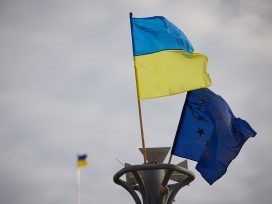
Ukrainians should have known that war would be the ultimate consequence of their identification with the West. Now that Russia has carried out its longstanding threat, the reality has dawned. But can the same be said for Europe?
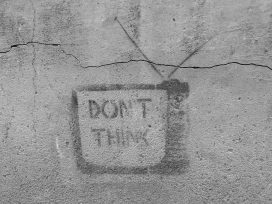
Until recently the EU overlooked the Serbian regime’s disregard for democratic standards, preferring to trust assurances about the country’s commitment to the European path. But support for Russia’s war has made Vučić’s dissimulation impossible to ignore.
